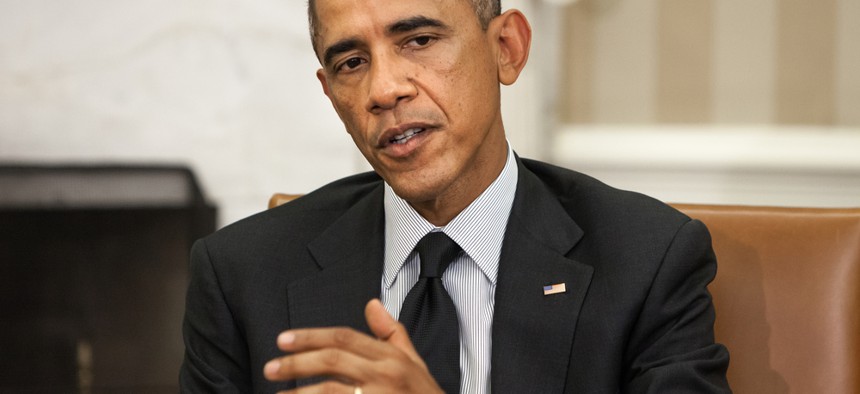
Drop of Light / Shutterstock.com
Obama: Obamacare Works, Beyond a 'Shred of a Doubt'
The president accused the Republicans of making false promises about the law and criticized them for failing to offer a "credible" alternative.
President Obama defended the Affordable Care Act on Wednesday, calling out Republican critics of the law and touting health care policies to build upon it.
"We've made our share of mistakes since we passed this law, but we also know beyond a shred of a doubt that the policy has worked," Obama said. "We have been promised a lot of things … that didn't turn out to be the case—death panels, doom, a serious alternative from Republicans in Congress."
The president also plugged a new program from his administration aimed at improving the health care delivery system. The Health and Human Services Department is convening a group of health care stakeholders to generate ideas on how to help shift the delivery system toward paying doctors based on the quality of their care rather than the sheer number of services they perform.
"We're moving Medicare toward a payment model that rewards quality of care instead of quantity of care," Obama said.
The president said Obamacare's success at expanding access to health care coverage paved the way for those broader reforms.
"What was also a central notion in the Affordable Care Act was that we had an inefficient system ... that didn't always deliver the kind of quality that was needed, that often put health care providers in a box that wanted to provide the best care to their patients, but financial incentives were skewing them the other way," Obama said.
Earlier this year, HHS laid out its quality-over-quantity plan: By 2018, it wants half of all Medicare payments to flow through specific programs that reimburse doctors based on their patents' health outcomes, rather than for procedures performed. It's an ambitious goal, but the department didn't say how exactly it aimed to get there.
The Health Care Payment Learning and Action Network, which HHS announced Wednesday, is intended as a partial answer to that question. "That's what the Health Care Payment Learning and Action Network is all about: working together to figure out what works," HHS Secretary Sylvia Mathews Burwell said. "We want to hear about your successes and misses."
The traditional pay-for-service model has been criticized as being inefficient and unrewarding to doctors who provide high-quality care to their patients.
The Affordable Care Act created several alternative payment models designed to compensate doctors for quality of service. These give providers a financial incentive to coordinate patient care and find appropriate health solutions quickly.
Registered network participants include more than 2,800 payers, providers, employers, patients, states, and consumer groups, including the American Cancer Society, the American College of Physicians, Cigna, Dignity Health, Caesars, Rite Aid, and the state of Delaware.
(Image via Drop of Light / Shutterstock.com)






